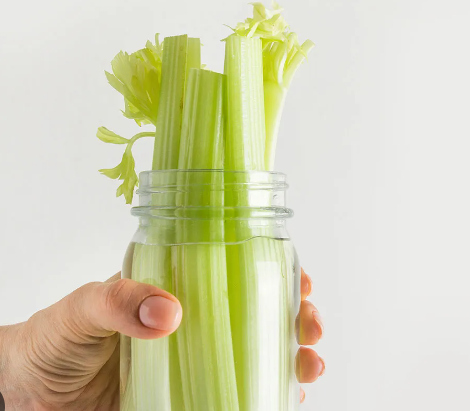celery juice benefits anxiety + video
Anxiety disorders are among the most prevalent mental health conditions in today’s world, affecting millions of individuals worldwide. Due to the widespread nature of these disorders, there has been an increasing interest in finding natural remedies that can potentially alleviate the symptoms or even prevent the onset of anxiety. In recent times, celery juice has gained significant popularity in the wellness community for its purported health benefits, with many proponents suggesting its effectiveness in addressing anxiety. This essay delves into the potential benefits of celery juice in relation to anxiety.
What Would Happen if You Drank Celery Juice Every Day? :
Historical Context
Celery has been utilized in traditional medicine systems for thousands of years. Originating from the Mediterranean region, ancient texts from various cultures describe celery and its extracts being used for a variety of health-related purposes, including as a sedative, which may provide some preliminary context for its potential application to anxiety disorders.

Phytochemical Composition of Celery
To understand the potential benefits of celery juice, one must first grasp its phytochemical composition. Celery is rich in a variety of bioactive compounds, including flavonoids, alkaloids, and phenolic acids. Among these, certain flavonoids such as apigenin and luteolin have received attention for their potential neuroprotective and anxiolytic properties. These compounds are believed to interact with various pathways in the brain, influencing neurotransmitter function, which is critical in modulating mood and anxiety.
Anti-Inflammatory Properties
Chronic inflammation is increasingly being recognized as a contributing factor to a range of mental health disorders, including anxiety. The anti-inflammatory properties of celery juice might have a role to play in this context. Celery is rich in antioxidants, which are known to combat oxidative stress, a major contributor to inflammation. By reducing systemic inflammation, there’s a potential that the regular consumption of celery juice could alleviate some of the underlying causes or aggravators of anxiety.
Mineral Balance
Celery juice is a source of vital minerals like magnesium and potassium. Magnesium, in particular, plays an essential role in nerve function and has been linked to anxiety. A deficiency in magnesium can lead to increased anxiety symptoms. By providing a natural source of this mineral, celery juice might aid in the balance of neurotransmitters, which are crucial for mood regulation.
Gut-Brain Axis and Celery Juice
Emerging research has suggested a profound connection between gut health and mental well-being, often referred to as the gut-brain axis. An imbalance in the gut, such as dysbiosis, can have a notable impact on mental health, potentially exacerbating anxiety symptoms. Celery juice, being a source of fiber and antioxidants, may support a healthy gut environment, thereby possibly influencing mental health through the gut-brain axis.
Detoxifying Properties
While the term “detox” is often overused in the wellness community, there’s no denying that a buildup of toxins and waste products can have detrimental effects on health, including mental health. Some proponents believe that celery juice, due to its diuretic properties, may help flush out toxins, creating a more favorable internal environment and potentially reducing the factors that might contribute to anxiety.
Potential Limitations and Considerations
It’s crucial to approach the benefits of celery juice with a balanced perspective. While the above points provide some theoretical basis for celery juice’s potential benefits in relation to anxiety, empirical evidence is still relatively limited. Most studies on celery’s health benefits have been conducted on animals or in vitro, and human studies are sparse.
Moreover, while celery juice may offer some potential benefits, it is not a standalone treatment for anxiety. It might complement existing treatments, but should not replace primary interventions like therapy, medication, or other proven methods. Individuals with anxiety disorders should consult healthcare professionals before making significant changes to their diet or treatment plan.
Furthermore, while celery juice can be a nutritious addition to one’s diet, consuming it in excess can have drawbacks. For instance, celery contains psoralens, which can increase skin’s sensitivity to sunlight, potentially leading to burns or rashes.


